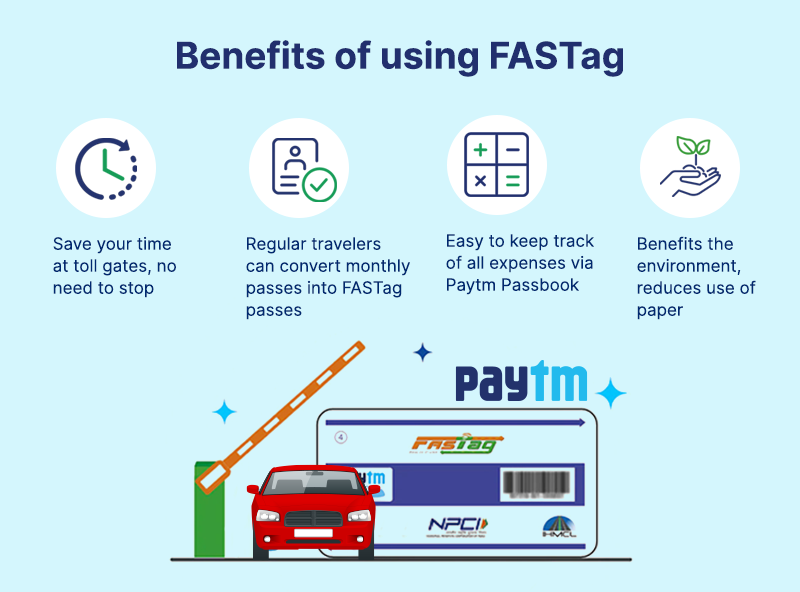To ease traffic congestion and long queues at toll plazas, the Government of India made it compulsory for all four-wheeler vehicles to have a FASTag. This small device allows vehicles to pass through toll booths without stopping for cash payments.
FASTag works using Radio Frequency Identification (RFID) technology, which detects the tag on your vehicle and deducts the toll amount from your linked digital wallet. This blog explains why having a FASTag is important and the benefits it offers.
Benefits of Using FASTag
- Cashless Convenience: With FASTag, you don’t need cash at toll booths. It automatically deducts toll charges from your linked account, making FASTag payments smooth and quick.
- Easy Purchase: FASTag is easy to buy online through apps like Paytm, banks, or the MyFASTag app, or you can get it directly at toll plazas.
- Validity Period: A FASTag stays valid for five years, so you can use it for a long time without needing to replace it often.
- Monthly Travel Pass Option: If you travel a lot, you can turn your monthly pass into a FASTag pass online without any hassle.
- Less Traffic Jams: FASTag helps vehicles move through toll booths faster, reducing traffic jams and saving time for everyone on the road.
- Wide Coverage: FASTag works at more than 750 toll plazas across the country, making it useful for travel on various highways and roads.
- Instant Updates: You’ll get notifications right after every FASTag payment, so you can keep track of your toll expenses easily.
- Monitor Your Spending: You can see all your FASTag transactions on the FASTag app or platforms like Paytm. This helps you know when to recharge your FASTag.
Why Is It Important to Have a FASTag?
The government now requires all vehicles to have a FASTag. Without one, you’ll pay double tolls or penalties. But with FASTag, toll payments are automatic, saving time and reducing traffic jams at toll booths.
Also Read: How to Check FASTag Balance?
In conclusion, using FASTag offers numerous advantages. It makes toll payments quicker and smoother, reduces traffic congestion at toll plazas, and saves you time on your journeys. Additionally, it promotes cashless transactions, leading to greater convenience and efficiency for travellers. With its wide acceptance, FASTag simplifies your road trips and enhances your overall travel experience.

Disclaimer: This blog is here to make complex processes easier to understand. However, please be aware that information might become outdated or change over time, or updates may occur. As a result, there might be some differences in the information provided. We do our best to keep everything up-to-date, but we recommend verifying information on official websites for accuracy.

